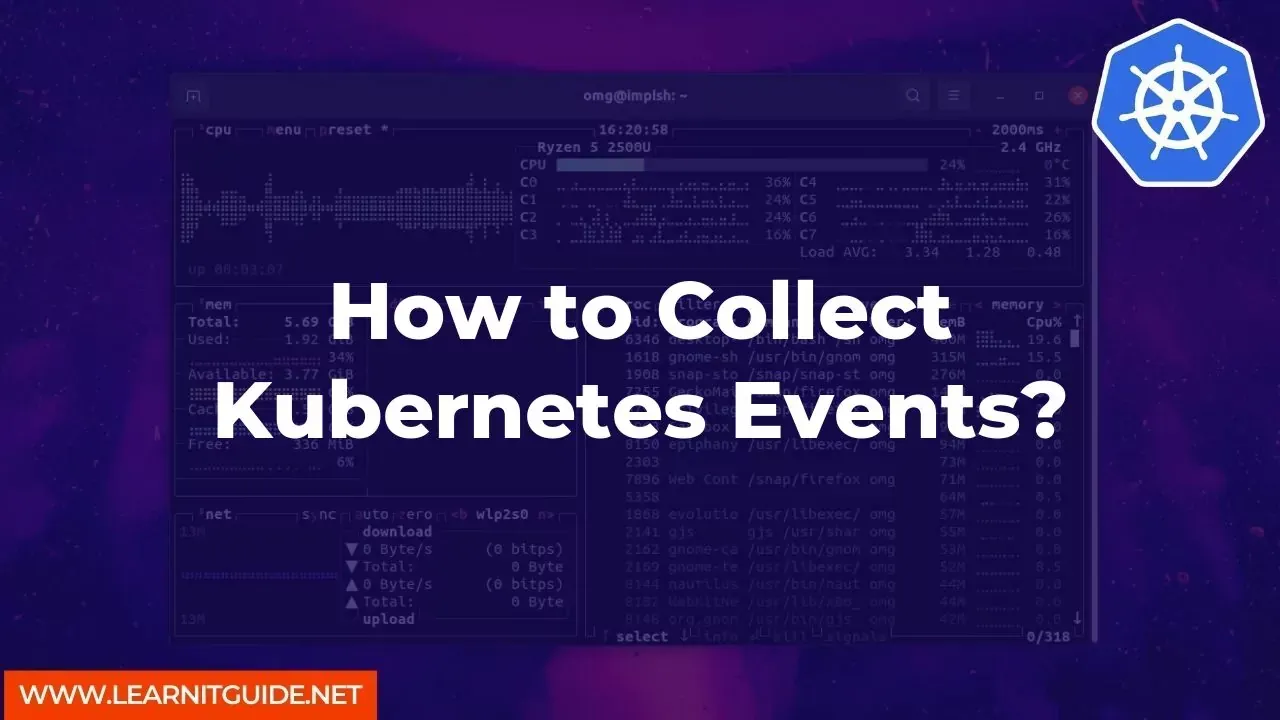Kubernetes is a powerful container orchestration platform used by many organizations to manage their applications and services. One of the most critical aspects of managing Kubernetes clusters is monitoring and troubleshooting. Kubernetes events are a useful source of information for debugging and understanding the health of a cluster. In this article, we will explore how to collect Kubernetes events.
Understanding Kubernetes Events
Kubernetes events provide insights into the state of objects in the cluster. They are generated by the Kubernetes API server in response to changes in the state of objects. Events can be used to track the progress of deployments, diagnose issues with pods, and identify problems with the cluster.Collecting Kubernetes Events
To collect Kubernetes events, we can use various tools and methods. Let's explore some of the most commonly used ones:Using kubectl command:
The easiest way to collect Kubernetes events is to use the kubectl command-line tool. The following command will show all the events in the default namespace:kubectl get events
To view events in a specific namespace, use the following command:
kubectl get events -n <namespace>
Using Kubernetes API:
Another way to collect Kubernetes events is to use the Kubernetes API directly. The following API endpoint can be used to retrieve all events in the cluster:GET /api/v1/events
To filter events based on a specific object, use the following API endpoint:
GET /api/v1/namespaces/<namespace>/events?fieldSelector=involvedObject.name=<object_name>
Using Prometheus:
Prometheus is a popular monitoring and alerting system used in Kubernetes. We can use Prometheus to scrape Kubernetes events and store them in its time-series database. The following Prometheus configuration can be used to scrape events:- job_name: 'kubernetes-events'
scrape_interval: 30s
kubernetes_sd_configs:
- role: endpoints
namespaces:
names:
- <namespace>
relabel_configs:
- source_labels: [__meta_kubernetes_event_reason]
regex: '.*'
action: keep
metric_relabel_configs:
- source_labels: [__name__]
regex: 'kube_events.*'
action: replace
target_label: event_name
honor_labels: true
metrics_path: /api/v1/events
Kubernetes events are a valuable source of information for monitoring and troubleshooting Kubernetes clusters. By using the methods described in this article, you can easily collect and analyze events to gain insights into the state of your cluster.
Related Searches and Questions asked:
That's it for this post. Keep practicing and have fun. Leave your comments if any.








0 تعليقات